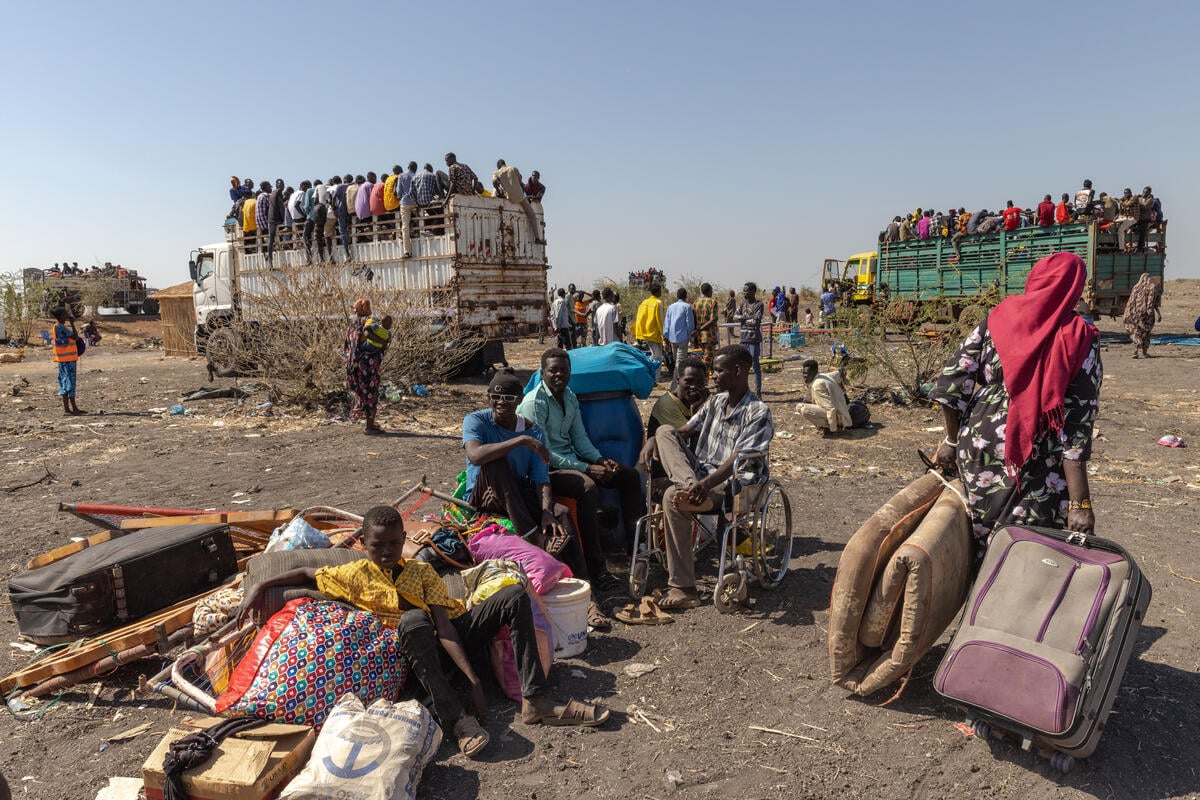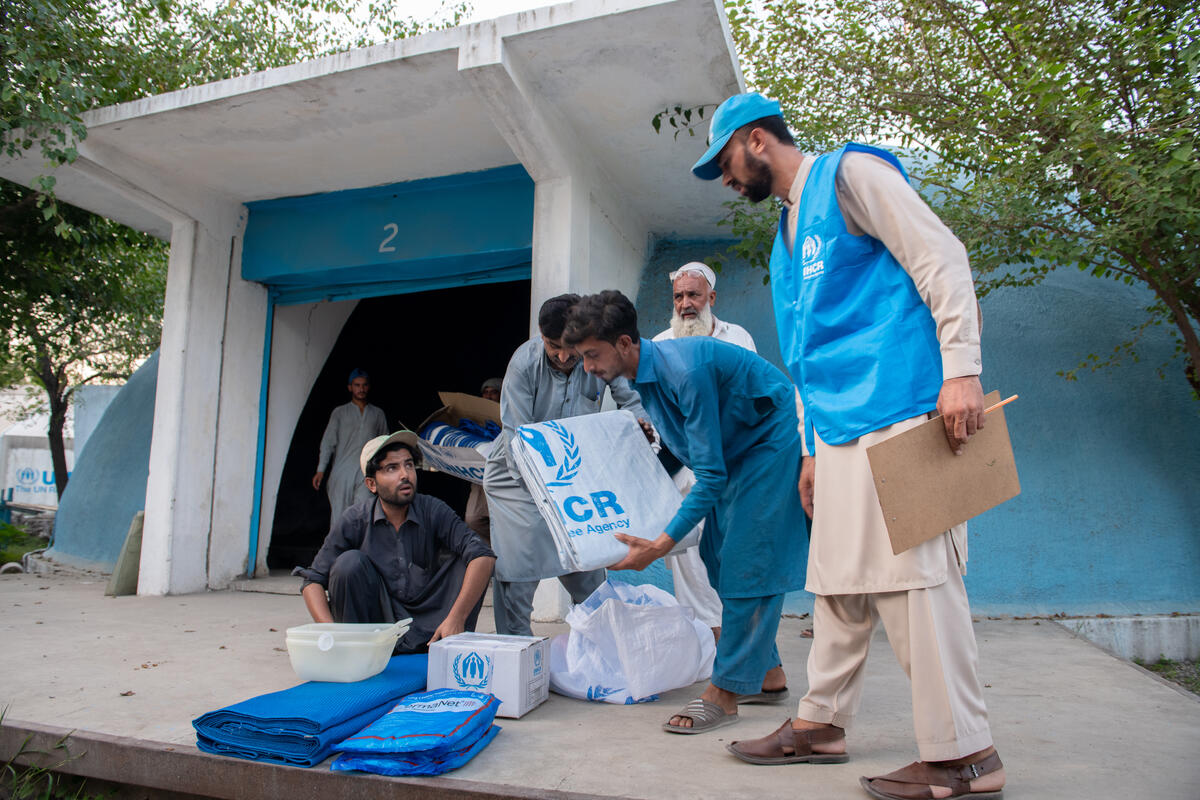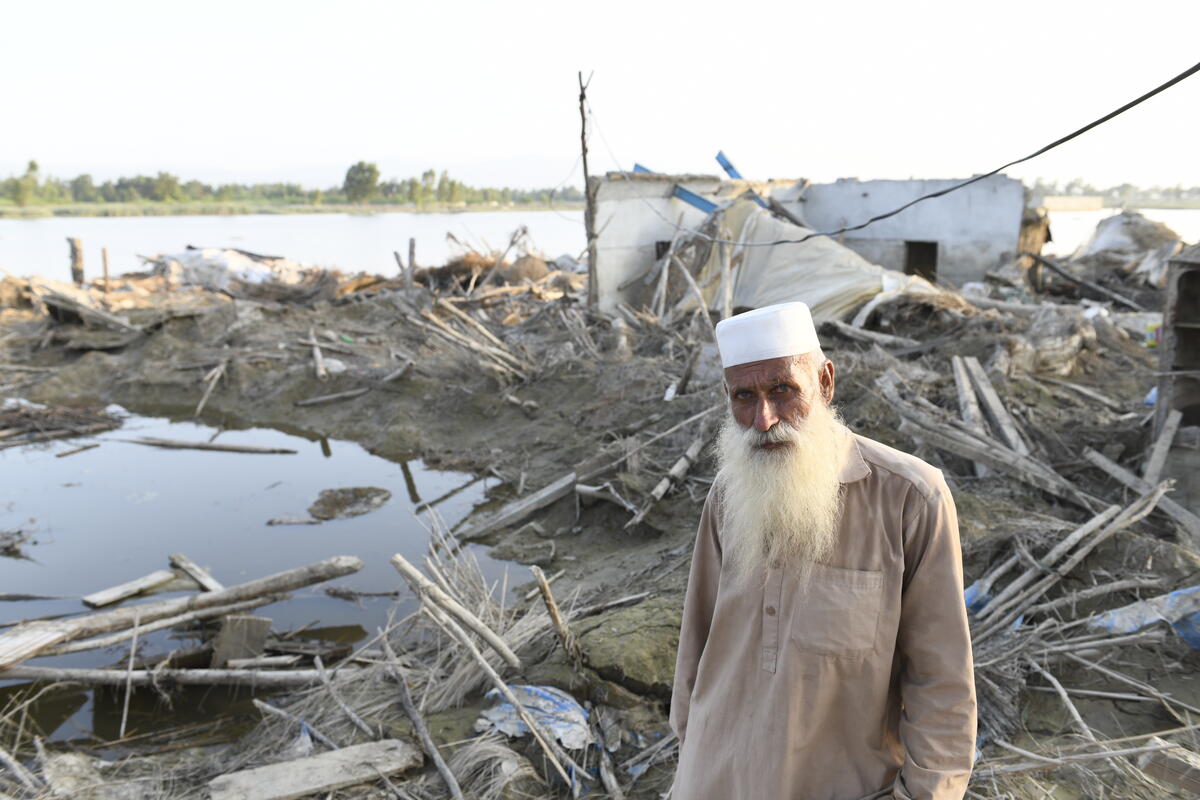Afghanistan Humanitarian Update No. 51
Afghanistan Humanitarian Update No. 51
24 January 2002
At a Glance:
- Interim Afghan authority reviews repatriation plan
- First phase of Shomali return ends
- Returns continue
- Jalozai nearly emptied
- Chaman update
Interim Afghan authority reviews repatriation plan
In a day-long meeting with senior UNHCR staff on Wednesday, the interim Afghan authority accepted the UN refugee agency's proposed plan to assist the return of hundreds of thousands of refugees this year.
UNHCR's draft proposal covers cross-border issues with Pakistan and Iran, practical matters like providing transportation and assistance to returnees as well as how to help with their reintegration into their home communities. Mr. Enyatullah Nazir, Minister of Repatriation in the interim government, said the ministry would review the draft text and was favourable to signing tripartite agreements with UNHCR and both Pakistan and Iran.
The issue of amnesty was discussed in the Kabul meeting that examined a proposed draft declaration of amnesties and guarantees for returnees, a standard practice in similar agreements worldwide. The minister was favourable to looking into the possibilities of granting amnesty to returnees, a move that would provide further incentive for return.
First phase of Shomali returns ends
Some 350 persons from 70 families returned to their home villages in the Charikar and Senjed Dara districts on Wednesday, ending the first phase of the UNHCR-coordinated returns to the war-ravaged Shomali Plain, north-east of the Afghan capital Kabul that began on 31 December.
A total of more than 8,300 people from some 2,200 families returned to districts that de-mining NGOs had checked for mines and unexploded ordnance and declared safe for habitation. The Afghans were shifted home from the Panjshir Valley, where they had sought refuge to escape fighting between the Taliban and their opponents over control of the agriculturally rich Shomali Plain.
Relief workers warned the Afghans that the region had been devastated by fighting, but they wanted to return immediately so as to start rebuilding.
On Wednesday, agencies started distributing emergency shelter supplies to the returnees to help them rehabilitate their homes, many of which were wrecked during years of fighting. Participants had previously received aid packages provided by ACTED, CARE, AMI, UNICEF and UNHCR, including tents, stoves, kitchen sets, charcoal, blankets, clothes and hygienic items.
The International Organization for Migration provided transport for the returning Afghans, while UNHCR and ACTED handled registration.
The return operation in the winter season has not been easy. Some 350 people who returned to Shomali remain in a tented camp at Estalif and say they will wait until Spring to go up the mountain to their heavily damaged village.
An estimated 200,000 people were forced from the Shomali Plain beginning in 1998 when fighting erupted in the area. Some 20,000 persons fled to the Panjshir Valley, while more than 15,700 persons set up camp in Kabul's former Soviet compound.
Returns continue
Over the last three weeks, more than 72,000 Afghans have returned home and thousands more continue to repatriate daily from both Pakistan and neighbouring Iran.
Since the start of the year, more than 58,000 Afghans spontaneously returned home from Pakistan, of whom 33,365 originated from Baluchistan Province. UNHCR staff in eastern Afghanistan counted more than 24,600 Afghans returning from Pakistan's North-West Frontier Province between 16 and 22 January. Actual return numbers from Pakistan over the many routes and irregular crossings linking it with Afghanistan are probably far greater.
UNHCR staff in the eastern Iranian border town of Dogharoun have counted more than 14,400 Afghans returning since the first of the year in ongoing voluntary repatriation movements coordinated by the Iranian authorities.
Jalozai nearly emptied
Efforts continue to relocate homeless new arrivals in Pakistan to new refugee camps where they can be better protected and assisted. Since starting its relocation convoys last November, UNHCR has moved more than 130,000 Afghans to 13 new refugee camps in Baluchistan and North-West Frontier Province (NWFP).
Since late last year when UNHCR and the Pakistan government began relocating Afghans from the makeshift site at Jalozai, near Peshawar, vast areas of the infamous windswept encampment have been dismantled.
Jalozai became a refuge for desperate Afghans fleeing civil war and drought beginning in late 2000 when they could find no other place to settle. The unofficial Jalozai site was a precarious haven where they endured tremendous hardship. Many succumbed to the winter cold and the stifling heat waves of 2001 as they lacked suitable shelter and sanitation.
Conditions at Jalozai deteriorated further following the post-11 September refugee influx. Seeking to avert a humanitarian crisis, UNHCR and the Pakistan government reached an agreement last year to relocate Jalozai's undocumented refugees to new sites where full assistance and protection could be provided.
Since last November, some 40,000 Afghans have been voluntarily relocated from Jalozai, finding conditions and services far better in the newly prepared camps. The six new camps in NWFP now host more than 46,000 refugees, the remainder comprising undocumented Afghans voluntarily relocated from Peshawar who were desperate for UN assistance and protection.
The remaining more than 10,000 Afghans at Jalozai include minority tribesmen who have requested relocation to the Shalman site in Kyber agency. Families have indicated a strong interest in shifting to camps located near return routes to Afghanistan. They argue that this would give them a "head start" when they ultimately decide to return home.
UNHCR estimates that Jalozai will be completely empty by the end of January. Once transfers from Jalozai are complete, UNHCR will start to move larger numbers of homeless Afghans from in and around Peshawar city. Staff in Peshawar have noted an increase in the numbers of people registering for relocation to the new border camps. This indicates that word from Afghans in the new camps is trickling back to Peshawar's refugee community, and that most families are satisfied with conditions in the new sites.
UNHCR is grateful for the support the Pakistan government and its Commission for Afghan Refugees (CAR) have provided throughout the operation.
Chaman update
Since October, over 50,000 Afghans have entered Pakistan through the Chaman border crossing and have been registered at the Killi Faizo transit centre, from where they have subsequently been transferred by UNHCR and CAR to the newly established camps of Roghani, Landi Karez, Dara and the nearby UAE Red Crescent-sponsored camp.
In addition, UNHCR estimates that around 150,000 Afghans entered Pakistan through unofficial border points, blending with the existing refugee populations in established Afghan settlements and in urban areas throughout the border belt in Baluchistan and North-West Frontier Provinces.
In urban areas across Pakistan's border belt Afghans face acute poverty. They live in miserable conditions, unable to find employment and access to basic services. As the economy in Baluchistan Province remains weak, the local population tends to see Afghans as competing for jobs, creating a generally unsafe and hostile environment for Afghans in urban areas.
To increase assistance and support to Afghan refugees in the cities, UNHCR and CAR began voluntarily relocating undocumented families from Quetta to the Mohammad Kheil camp. To date, more than 40,000 persons have been relocated to Mohammad Kheil. An additional 733 ethnic minorities (i.e. Uzbeks) were transferred to the nearby Latifabad camp in Quetta district.
UNHCR continues to register refugees as they are transferred to the new camps in Baluchistan and NWFP. As part of the overall effort to harmonize registration with a voluntary repatriation programme, UNHCR staff have begun collecting information on skills and education. Combined with standard registration information such as place of origin, family size and vulnerability, the exercise will provide valuable data for the return and rehabilitation programme in Afghanistan.









